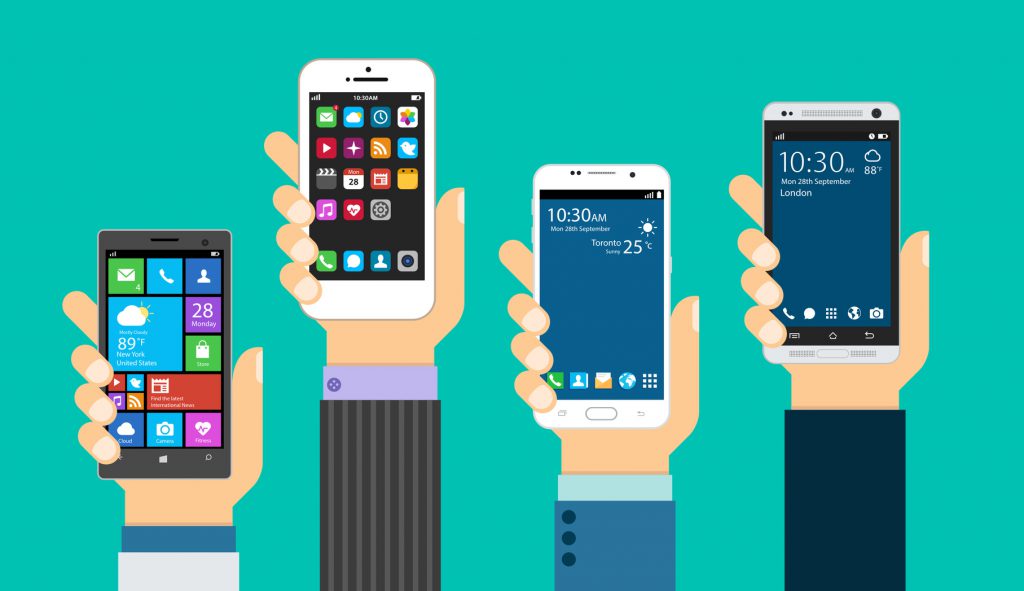Does your business need an app?
5 tips for building intelligent mobile apps for your business 
More small to medium sized businesses (SMBs) are following the mobile trend, understanding that an effective mobile strategy involves more than just a mobile-friendly website.
SMB’s that have developed their own dedicated mobile applications are leaps and bounds ahead of their competitors when it comes to taking their businesses to the next level.
For example, MMindz, developer of the world’s first mobile money accounting solution MyAccounts uses Microsoft Azure to help African SMEs be more competitive. MyAccounts is built and hosted in the cloud, and has a lower cost of infrastructure, providing an affordable service for customers. The app has catapulted the company to success in the African market.
Building mobile apps used to be a difficult task. With time spent on rolling out cloud services, integrating various push services, building databases and even setting up single-sign ons – basically building the necessary infrastructure to run your application. It’s no wonder that many SMBs just did not have the time or money to build a competitive mobile app for their business.
Now, you can hand over the infrastructure that your app needs to a cloud platform that’s designed to help you integrate everything to quickly build web and mobile apps for any platform or device.
If you’re thinking about developing a cloud-enabled mobile app for your business, these are some of the features your service provider should be able to offer:
- Authentication and authorisation
Authentication or authorisation is a feature that allows your app to log in users with no code changes required on the app backend. It’s an easy way to protect your application and work with each user’s data. Choose a service that allows you to select from a large list of identity providers, including enterprise authentication as well as social network providers such as Facebook, Google, Twitter and Microsoft Account.
- Build once. Reach more customers, across any platform
With certain cloud providers like Microsoft Azure, you can code in one language. This means you can target any device including iOS, Android, and Windows—ultimately expanding your audience and reaching more potential customers. Azure also allows app developers to build in cognitive API, which enables the app to mimic human functions like speech. Cognitive API can convert text into speech, recognise familiar faces and emotions and give advice to your customers.
- Build an app that scales
As your business grows, it is very important that your app can handle a growing amount of users or an influx of information and data. Your app service should be able to quickly scale-up or out to handle any incoming customer load. - Push Notifications to millions in seconds
Smartphones and tablets have the ability to "notify" users when an event has occurred. These notifications can take many forms but your app should be able to engage your customers with instant push notifications on any device, personalised to their needs and sent when the time is right. - Online and offline
Make sure your app is functional without a network connection. When your app is in offline mode, users should still be able to create and modify data. When the app is back online, it should sync any changes with the backend of the application.
Azure App Service is a cloud app service that integrates everything you need to quickly and easily build web and mobile apps for any platform or device. Azure Mobile Apps make it easy to add login, push, and data sync to your iOS, Android, or Windows app, to scale globally, and to connect your app to enterprise systems and on-premises resources.
Azure Web Apps enable developers to easily deploy and scale enterprise grade web applications written in a variety of languages and integrated with a multitude of services without ever worrying about infrastructure management}
MMindz chose to use Microsoft’s cloud computing platform, Azure, as its hosting and developer environment. MMindz’s other apps, mobile app APIs, dashboards and all systems are hosted on Azure, with its databases running directly on Azure storage or on a virtual machine.
According to Francis Otim, founder of MMindz “Azure helped us solve the financial inclusion challenges of the number of African merchants using mobile money. We wanted to provide unique value for our clients without spending a lot on infrastructure,”
Azure also enabled Francis to tailor his solutions for the African market, for example developing data light apps that run on very little megabytes because of bandwidth constraints in many parts of the continent.